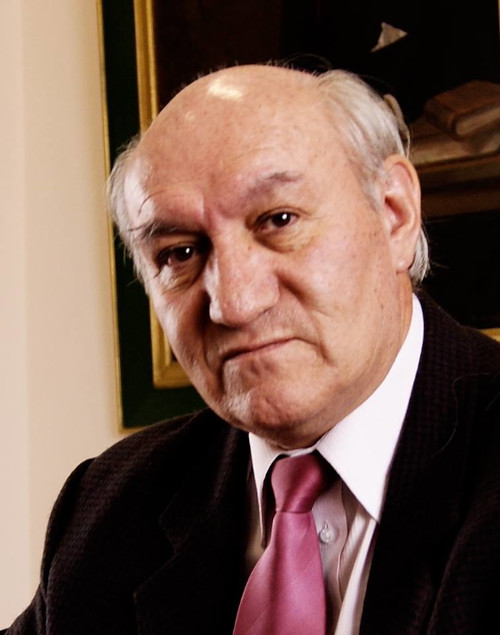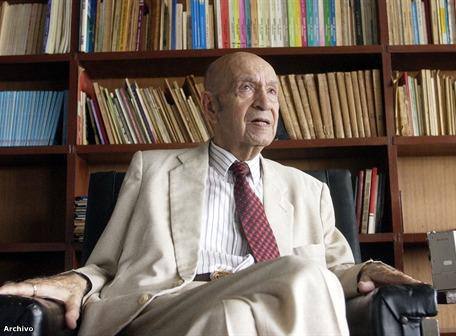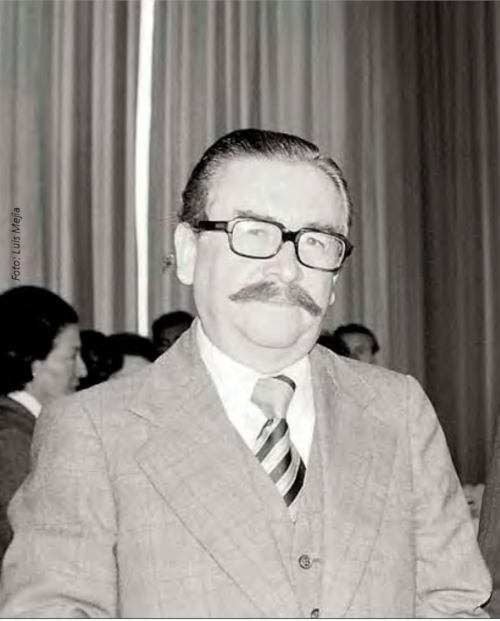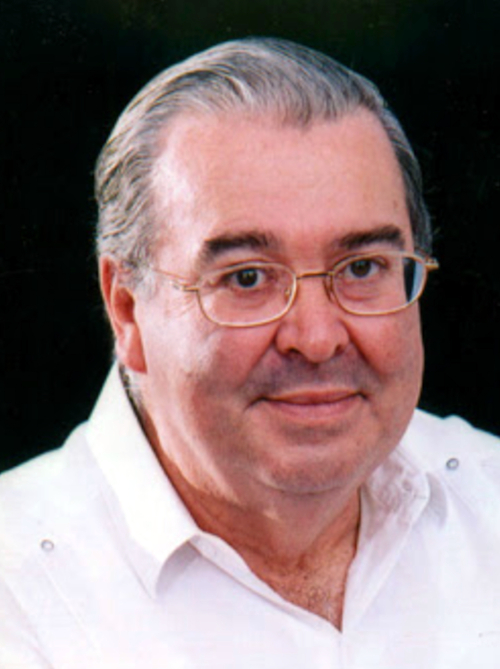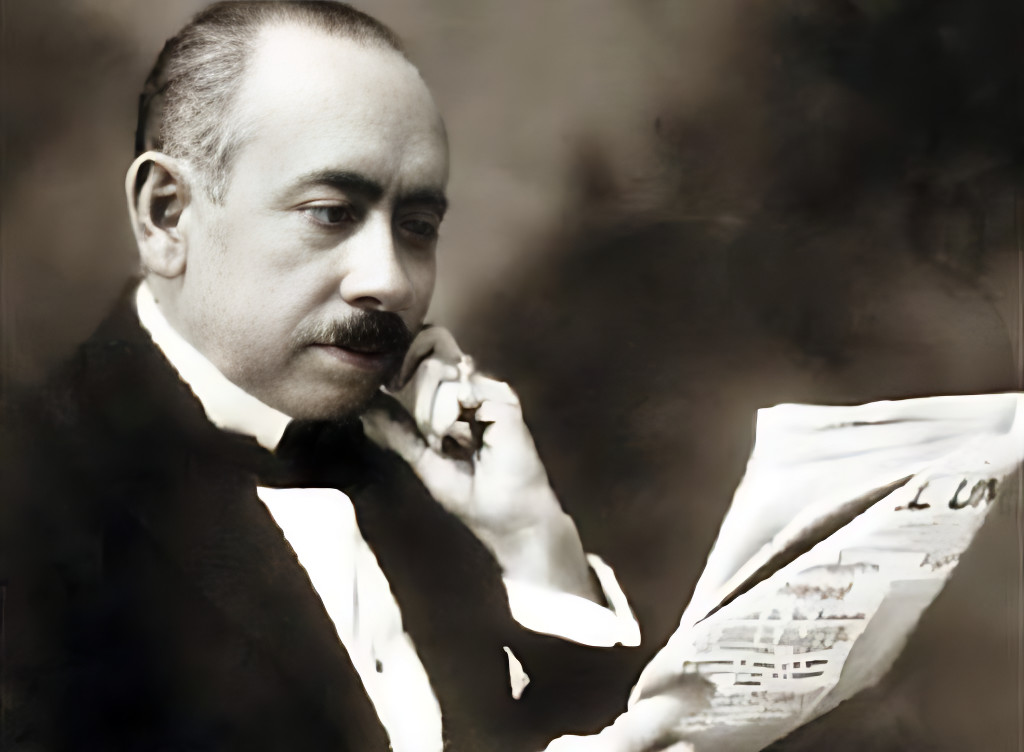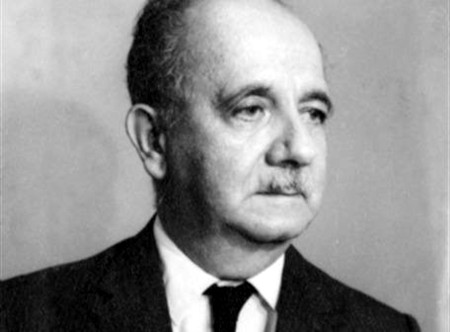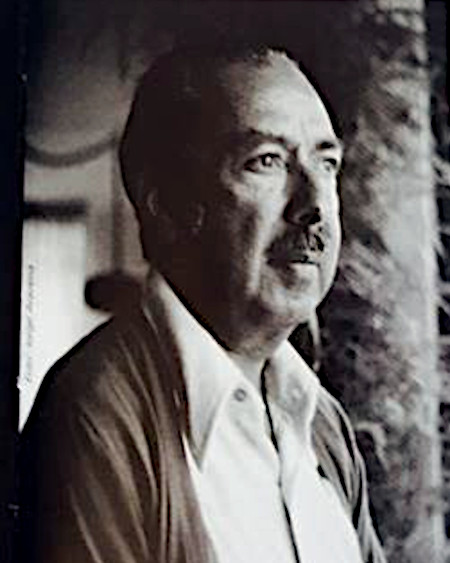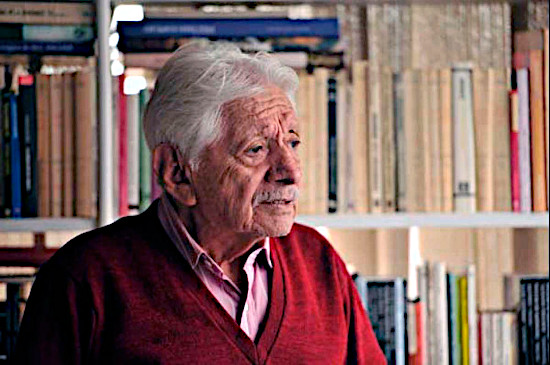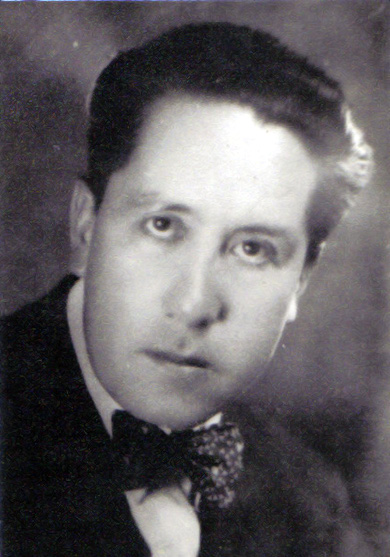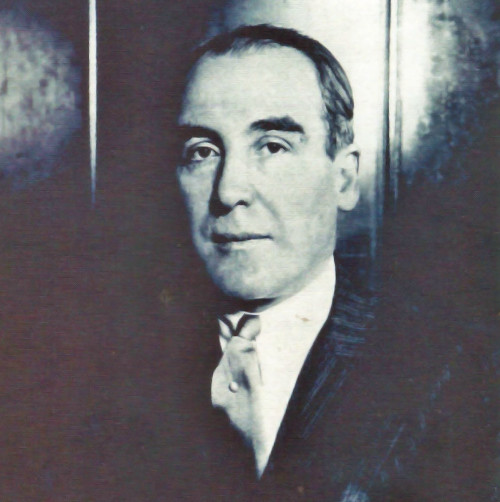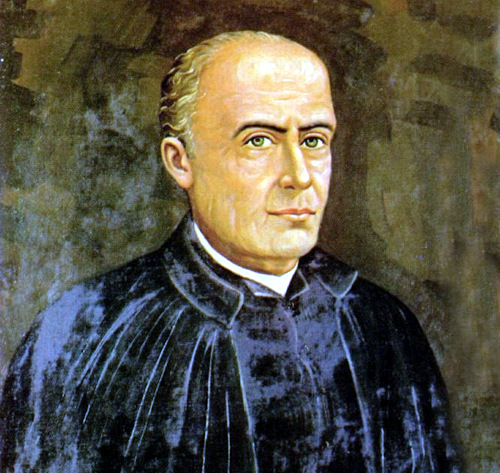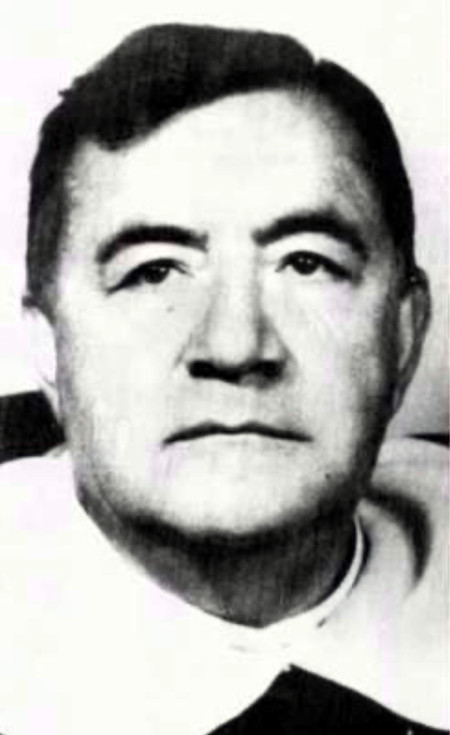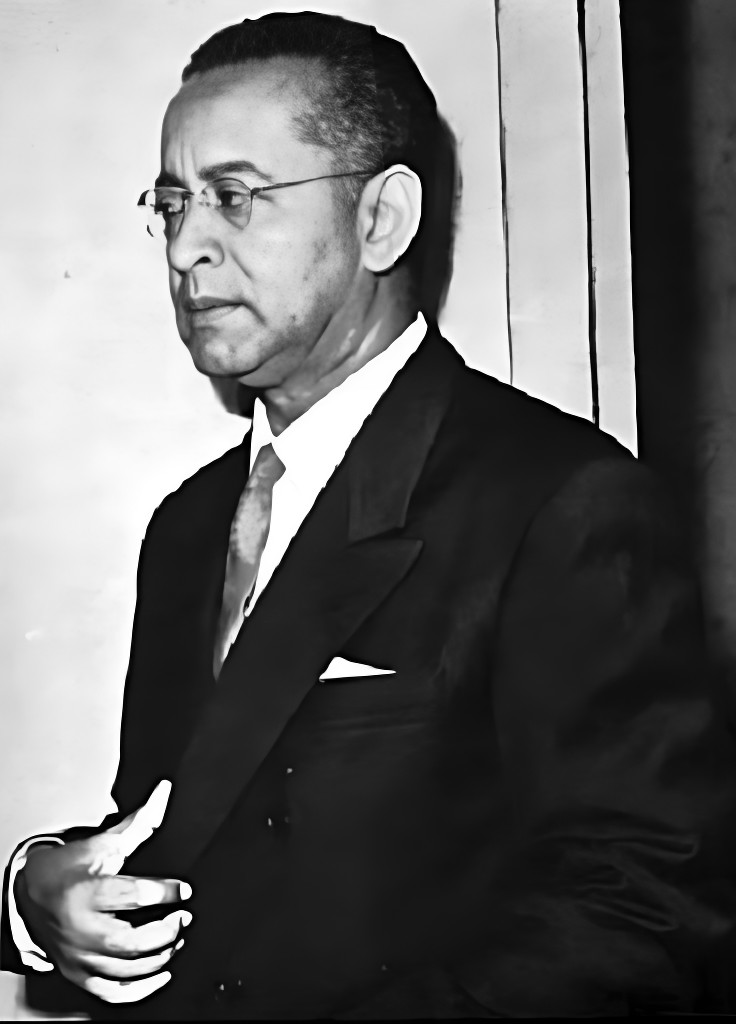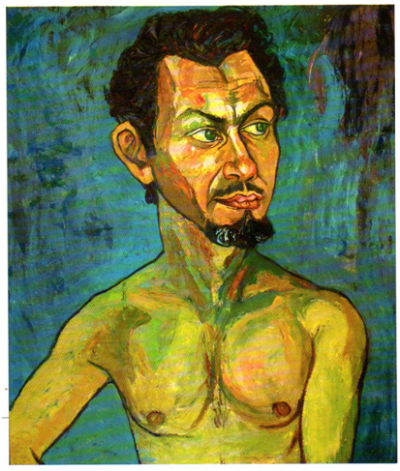J.D. Santibáñez, born José Daniel Santibáñez (Guayaquil, 1959) is an Ecuadorian science fiction novelist and comic book writer. He studied Illustration at Parsons School of Design in New York. Santibáñez’s literary contributions include two notable novels: “Ejecútese el mañana” (2001; Execute Tomorrow), a thrilling blend of science fiction and noir set in the near future, and “El mago” (2003; The Magician), a captivating fusion of fantasy, supernatural elements, and action. Displaying his creative versatility, Santibáñez also delved into the realm of comic books, crafting the critically acclaimed “Cómic Book” (2008), a compilation of 27 enthralling graphic stories encompassing science fiction and crime. Alongside his remarkable artistic achievements, Santibáñez shares his knowledge and expertise as a professor at institutions such as the Escuela Superior Politécnica del Litoral (ESPOL), Universidad Santa María (USM), and Universidad de Especialidades Espíritu Santo (UEES). His written works, whether in prose or sequential art, enthrall readers with their fast-paced, darkly ironic, and immensely entertaining narratives populated by a diverse cast of characters, ranging from cowboys and time travelers to hitmen and apocalyptic monsters.
Continue reading “J.D. Santibáñez”Posts
Jorge Núñez Sánchez
Jorge Núñez Sánchez (Bolivar, February 6, 1947 – Quito, November 1, 2020) was an Ecuadorian writer, historian, and professor. He was the author of 56 books and co-author of 66 other books. He was a professor at the Central University of Ecuador and Treasurer of the National Academy of History. In 1992 he was appointed the director of the Department of History and Geography of the House of Ecuadorian Culture. In 2010 he was awarded the Eugenio Espejo Prize in Culture by the President of Ecuador.
Continue reading “Jorge Núñez Sánchez”Ángel Felicísimo Rojas
Ángel Felicísimo Rojas (Loja, December 20, 1909 – Guayaquil, July 20, 2003) was an Ecuadorian novelist and short story writer. His best known novel is El éxodo de Yangana (1949), which is one of Ecuador’s most important books. In 1948 Rojas published an influential book entitled The Ecuadorian Novel, which set the tone for literary criticism in the country for future decades. Rojas founded the Socialist Party of Loja in 1927. He was a passionate supporter of socialism, which led to his arrest and imprisonment by the Ecuadorian government in 1941. In 1997 Rojas was awarded the Eugenio Espejo Award in Literature.
Continue reading “Ángel Felicísimo Rojas”Galo René Pérez
Galo René Pérez (Quito, April 3, 1923 – June 18, 2008) was an Ecuadorian writer, poet, literary critic, biographer, and college professor. He held various posts in literary and cultural institutions of Ecuador. He was Secretary of Public Education during the government of the former President Galo Plaza, and served as Secretary General of the Council of Government. He was also President of the House of Ecuadorian Culture and Director of the Ecuadorian Academy of Language. He published 14 books in his career. His lectures, essays, articles, literary criticism have been collected and published for study abroad. His style, which is simple and elegant, has won him admirers the world over. He was the 2004 recipient of the “Premio Eugenio Espejo” Ecuador’s highest literary award.
Continue reading “Galo René Pérez”Rodolfo Pérez Pimentel
Rodolfo Pérez Pimentel (Guayaquil, November 2, 1939) is an Ecuadorian lawyer, historian, and biographer. He was declared the lifetime chronicler of the city of Guayaquil, and is a member of the National Academy of Ecuadorian History. Pérez Pimentel is the author of the Biographical Dictionary of Ecuador (Diccionario biográfico del Ecuador), which consists of about 1,600 biographies of nationals and foreigners who have been an integral part of Ecuador. In 2005, Pérez Pimentel won the Eugenio Espejo Prize in the literature category for his lifetime work as a biographer. Rodolfo Pérez Pimentel is a highly respected figure in Ecuadorian literary and historical circles, known for his dedication to research, his extensive publications, and his commitment to preserving the cultural heritage of Guayaquil and Ecuador as a whole.
Continue reading “Rodolfo Pérez Pimentel”Ismael Pérez Pazmiño
Ismael Pérez Pazmiño (Machala, June 30, 1876 – Los Angeles, November 1, 1944) was founder of El Universo newspaper of Guayaquil, Ecuador, and former senator of El Oro province. He published the first edition of El Universo on September 16, 1921. El Universo is still run by Pérez Pazmiño’s descendants. Many educational institutions and streets bear his name in Ecuador. An important national poetry contest by El Universo also bears his name.
Continue reading “Ismael Pérez Pazmiño”Jorge Pérez Concha
Jorge Pérez Concha (Guayaquil, June 5, 1908 – Guayaquil, April 1, 1995) was an Ecuadorian historian, biographer, writer, and diplomat. He wrote biographies of Eloy Alfaro, Luis Vargas Torres, and his uncle Carlos Concha Torres, among others. In 1989 Pérez was awarded the Eugenio Espejo Award in Culture by the president of Ecuador.
Continue reading “Jorge Pérez Concha”Edmundo Ribadeneira Meneses
Edmundo Ribadeneira Meneses (Ibarra, November 2, 1920 – February 14, 2004) was an Ecuadorian writer and university professor. He was the president of the House of Ecuadorian Culture from 1979-1988. In 1988 the president of Ecuador conferred on Ribadeneira the Eugenio Espejo Award for his lifetime of contribution to the national culture.
Continue reading “Edmundo Ribadeneira Meneses”Efraín Jara Idrovo
Efraín Jara Idrovo (Cuenca, 26 February 1926 – Cuenca, 8 April 2018) was an Ecuadorian writer and poet. Tragedy struck Idrovo in 1974, when his teenage son committed suicide. Idrovo expressed his sorrow in the form of a poem, “Weeping for Pedro Jara (structures for An Elegy),” which was published in 1978 and is considered one of Jara’s most important works. The Biographical Dictionary of Ecuador has called it “one of the greatest and most beautiful national poems ever written.” The poem is highly experimental, in that it was printed on a single 60cm by 70cm sheet of paper, divided into 15 sections, and can be read horizontally, vertically, or diagonally. He was president of the Azuay branch of the House of Ecuadorian Culture. In 1999, Jara was awarded the Eugenio Espejo Award, the nation’s highest literary honor.
Continue reading “Efraín Jara Idrovo”Ricardo Paredes Romero
Ricardo Paredes Romero (March 19, 1898 – 1979) was an Ecuadorian doctor, writer, naturalist, social scientist, and politician. Romero founded the Socialist Party – Broad Front of Ecuador.
Gonzalo Zaldumbide
Gonzalo Zaldumbide (Quito, December 25, 1884 – Quito, November 30, 1965) was an Ecuadorian writer and diplomat. He was ambassador to Paris, minister of Foreign Relations (1929) and ambassador to London (1950).
Juan de Velasco
Juan de Velasco y Pérez Petroche (Riobamba, January 6, 1727 – Faenza, Italy, June 29, 1792) was an influential 18th-century Jesuit priest, historian, and professor of philosophy and theology from the Royal Audience of Quito. He dedicated his life to intellectual pursuits and made significant contributions to various fields of study. Velasco’s most notable work, “Historia del Reino de Quito,” sheds light on the existence of a pre-Inca kingdom in Ecuador, leaving a lasting impact on the country’s historical narrative. His scholarly endeavors extended beyond history, as he also wrote textbooks on physics and anthologies of poetry. Velasco’s versatile expertise and commitment to knowledge continue to be admired, making him a celebrated figure in Ecuadorian intellectual and cultural heritage.
Continue reading “Juan de Velasco”José María Vargas
Fray José María Vargas Arévalo O.P. (Chordeleg, Azuay, November 9, 1902 – Quito, March 25, 1988) was a distinguished Ecuadorian Dominican friar, historian, and author. Ordained on December 28, 1928, he made significant contributions to historical literature. His works include biographies of the 16th-century South American painter Fray Pedro Bedón and the Spanish Dominican missionary Fray Domingo de Santo Tomás. Vargas was renowned for his in-depth historical accounts of Ecuador, with notable titles like “La Cultura del Quito Colonial,” “La Evangelización en el Ecuador,” and “La Misión Científica de los Geodésicos Franceses en Quito.” His outstanding contributions to Ecuadorian culture were honored in 1984 when he was awarded the prestigious “Premio Eugenio Espejo” in the category of Culture.
Continue reading “José María Vargas”Adalberto Ortiz
Adalberto Ortiz Quiñones (Esmeraldas, February 9, 1914 – Guayaquil, February 1, 2003) was an Afro-Ecuadorian novelist, short story writer, poet, professor and diplomat. Among his most important books are: Juyungo (1942, novel; English translation by Susan Hill and Jonathan Tittler, 1983); Earth, Sound and Drum (1953, poetry); Entundada (1971, short story). His most defining feature as a writer was the incorporation of the elements of afro-Ecuadorian culture, enriching his literary vocabulary with its jargon, its elasticity and its rhythm. In 1995 Ortiz was awarded the Eugenio Espejo Prize, Ecuador’s most important literary award.
Continue reading “Adalberto Ortiz”Humberto Moré
Emilio Humberto Moré, born Lalot Rivadeneira Plata (Esmeraldas, April 14, 1929 – Havana, Cuba, 1984) was an Ecuadorian painter, sculptor, muralist, poet, writer, and art critic. He is widely regarded as one of Ecuador’s most significant painters. He developed his own style which he called “Functional Signology.” His primary contribution to literature is in the areas of art criticism and poetry. His published works include: “El chasqui dormido” (1965), “Actualidad pictórica ecuatoriana” (1970), “Evaluación de los ismos” (1968), and the poem collection “Bolívar sol de América” (1983). In 2011, Moré’s son Leonardo Rivadeneira Chaw released an artistic retrospective on his father’s work entitled “Humberto Moré y su signología.”
Continue reading “Humberto Moré”